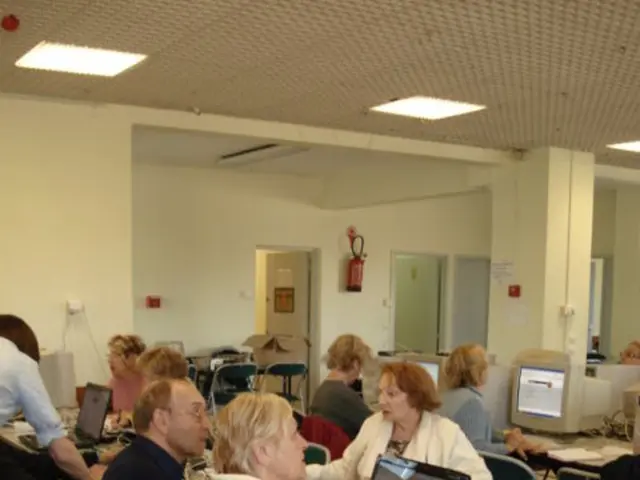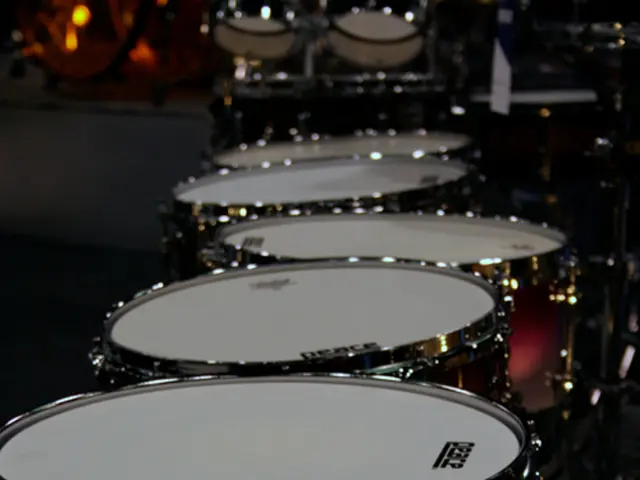Understanding Signs of Drug-Facilitated Sexual Assault (Date Drug)
Let's dive into the ugly truth about drink spiking, a nasty practice known as "roofies."
First off, don't think you're immune to such shady shenanigans just because you're out for a fun night. It can happen to anyone, and it's about time we all get real about the deadly dance floor.
The term "roofies" originated from Rohypnol, a powerful benzodiazepine that slows down your central nervous system. But these days, the name isn't specific to just Rohypnol - it's a sneaky catch-all for any drink-spiking substance.
So, what drugs can you find in a roofied drink? Here are some common ones:
- Gamma-Hydroxybutyric acid (GHB)
- Ketamine
- Prescription anti-anxiety and sleep medications
- Hallucinogens such as LSD
- Stimulants like MDMA (ecstasy) or GBL
The goal? Seriously, it's to assault you. These drugs make it easier for perpetrators to harass, rape, and sometimes even kill their victims.
But how can you spot a roofie attack in action? Well, here's what to look out for:
- Sudden changes in behavior or appearance
- Nausea, vomiting
- Extreme drowsiness
- Headaches, dizziness, balance issues
- Paranoia, panic, hallucinations
- Slow response time and decision-making skills
- Weakness or loss of muscle control
If you notice any of these signs in yourself or a friend, get help immediately. No one should ever feel obligated to shoulder the consequences of a drink spiking incident.
To protect yourself, make sure you:
- Avoid partying alone. Stick with your squad and check in regularly.
- Have a plan for your exit - never leave spontaneously.
- Stay aware of local drink-spiking trends and report any issues to venue managers.
- Understand your alcohol tolerance and stay within your limits.
- Only drink from sealed containers or beverages prepared by trusted bartenders.
- Never leave your drink unattended, and replenish it with a new one if needed.
- Consider using drink-protection covers or detection accessories for added peace of mind.
- Don't be afraid to toss a suspicious-looking drink and order a new one.
Remember, it's completely normal to feel a range of emotions after a roofie attack – shame, embarrassment, anger, depression, anxiety, and even PTSD symptoms like rape trauma syndrome. But always know that it's not your fault.
Seek therapy, reach out to support groups, or contact organizations like RAINN for help and advice. And make sure to report any incidents so we can keep a watchful eye out for potential offenders.
Lastly, remember you have the power to take control. So stay safe, stay vigilant, and don't let the bad apples ruin our nightlife. Cheers!
- Stay informed about general-news related to health and wellness, including the prevalence and prevention of sexual- and mental-health issues like drink spiking, as awareness can empower individuals to take necessary precautions.
- Historically, chemicals such as Rohypnol have been used to facilitate criminal activities, but the term 'roofies' now encompasses any substance used for drink spiking. Being aware of the various drugs, such as GHB, ketamine, prescription anti-anxiety and sleep medications, hallucinogens, stimulants, and even date-rape drugs, can help you identify potential risks.
- Maintaining open discussions about culture and health within your social circles and communities is essential in eradicating the stigma associated with sexual-health issues and encouraging the reporting of incidents.
- Science has uncovered the devastating effects of drink spiking on mental-health, revealing increased risk for PTSD symptoms like rape trauma syndrome. Seeking help from mental-health professionals, support groups, or organizations like RAINN can provide healing and support for those affected by such assaults.







